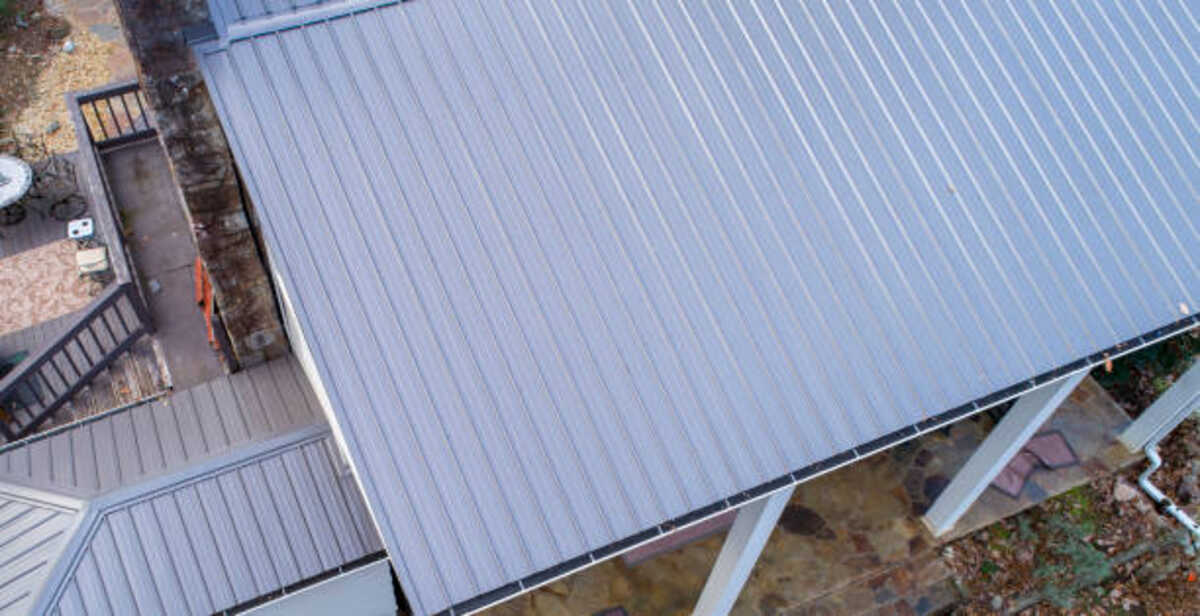A roof over one’s head is a fundamental and permanent human necessity. But, while the need remains constant, the top itself evolves. Current trends show a comeback of important earlier technology and a willingness to adopt new materials to help keep rain, sleet, and snow out. Best way to find the metal roofing company.
Roofing Made from Plants
Sod roofs have existed for hundreds of years, so it may appear unusual to include them in current trends. Sod roofs were standard in Scandinavia until the 17th century, and only houses with roofs that were too steeply pitched for sod utilized wooden planks or shingles. The Scandinavian sod roof was made of wooden boards coated with numerous layers of birch bark to make the roof watertight, with sod as the top layer to hold the bark in place.
Modern green roofs may be made of different materials, but the philosophy underlying them is very similar. They use many layers of carefully constructed components to preserve the underlying structure and keep vegetation in place. While details vary depending on location, green roofs typically contain a root barrier membrane, unique fabric layers for water distribution and drainage, a wind stabilization system, and a remarkably lightweight growing media.
Green roofing is becoming more popular, thanks partly to greater environmental consciousness. Aside from its visual appeal, a green roof can provide significant insulating value, aid in water runoff control, and materially increase the roof’s useful life by protecting it beneath roof components.
Roofing Material Made of Plastic
Plastics are not often regarded as environmentally friendly materials; however, recycling plastics into roofing materials is a great approach to repurpose a substance that would otherwise enter the environment and remain there for an extended period. However, in the past, plastic shingles made minimal inroads into the roofing sector. The plastic appeared to be an artificial material with no visual appeal. Roofers had to combine shingles from different pallets skillfully to get even a partially natural look. Without meticulous installation, a patchwork, fake-looking roof detracted from a property’s curb appeal and market potential.
Manufacturers have made significant progress toward producing a more natural-looking product by improving the appearance of individual tiles and supplying pallets that are mixed at the factory. Despite a a much better look, plastic’s expensive initial material cost remains an impediment. However, installation is no more complex or costly than installing composite shingles. Plastic shingles have many advantages once placed, including good impact and fire ratings and a useful life of several decades. Because of its endurance, a plastic roof is ultimately a more cost-effective solution in the long run, especially compared to the 15-year life expectancy of an asphalt shingled roof.
Metal Roofs
Metal is yet another material employed in roofing with inconsistent outcomes. Previous versions of metal roofs used panels that were caulked and screwed directly into the structural components of the top, which was a formula for catastrophe. In addition, metal panels expanded and contracted in reaction to temperature fluctuations, causing leaks and cracking, especially in thin, light panels.
Manufacturers have addressed this issue with clever panel attachment systems, often with concealed clips that allow panel movement without reducing weather tightness. Metal roofing is more durable than asphalt shingles and should require little or no maintenance if properly installed.
Traditional materials such as galvanized steel and copper are still widely used but have been joined by stainless steel, aluminum, zinc, aluminum, and steel mixtures. At the same time, the development of long-lasting paints and durable ceramic coatings has helped to remove rust and corrosion concerns while also improving the roof’s energy efficiency and providing many texture and color options.
Read also: The Way To Install Kitchen Backsplash Porcelain Tiles


 Home
Home